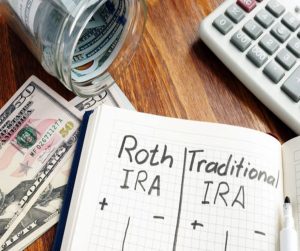Paying attention to tax strategies for your retirement income is important. Making tax-savvy moves now can help with your current income and future financial savings goals. There are a variety of tax deductions and credits available to people who save for retirement.

Several types of accounts are available that can be aligned with specific investing goals. Here are two employee contribution types to consider:
- Tax-deferred: Traditional pre-tax 403b, 457b, and 401k plans allow you to realize immediate tax deductions up to the full amount of your contribution, but future withdrawals from the account will be taxed at your ordinary-income rate.
- Tax-exempt: Roth 403b, Roth 457b, and Roth 401k plans don’t deliver a tax benefit when you contribute to them. Instead, they provide future tax benefits; withdrawals at retirement are not subject to taxes.
Both types of retirement accounts minimize the amount of lifetime tax expenses someone will incur, which provides incentives to start saving for retirement at an early age. Each person’s personal situation is different, and a tax strategy needs to be customized for you. Talk with a tax or financial advisor to learn more and put together a personalized plan that will work best for you.
Fidelity (schedule-a-meeting or 800-343-0860) and TIAA (www.tiaa.org/unc or 855-400-4294)
